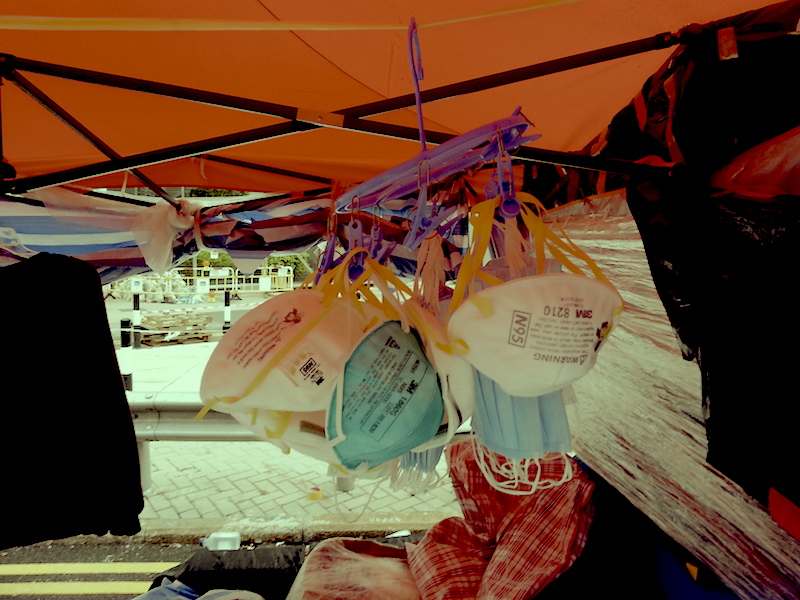
Protesters have prepared well for their entrenchment. Shared through social media and online how-to articles, “lifehacks” are being implemented unilaterally. Clothes hangers have become storage for face masks, police tape has become washing lines, students respectfully queue up for free t-shirt printing, and volunteers dole out health and safety tips as recycling teams sweep the streets.

Tent maintenance has been a key factor throughout. To protect against water on the ground, wood pallets or packing crates are used to hoist the the unit up, with water bottles weighting down the poles on all sides. Metallic sheets, or indeed umbrellas, cover the roofs, insulating and giving added protection from the rain. The fact that the umbrella also has a symbolic presence at the protests – first used as a shield against pepper spray – gives such setups additional grace and meaning.
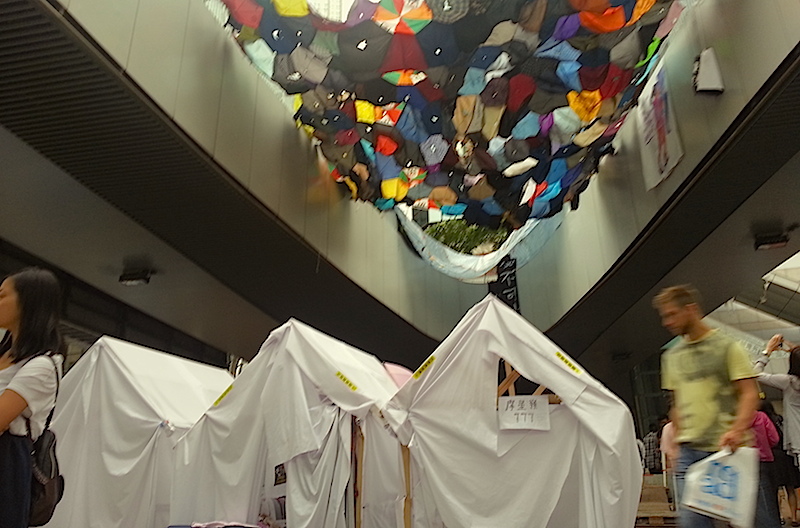
Quilted together across two pedestrian overpasses on Harcourt Road, this patchwork of innovation makes up the renamed Umbrella Square.
“It’s a community”, declares one volunteer at the Occupy Central tent. A former office clerk from Choi Hung, Frankie speaks with pride about the amenities at the protests site. Likening the public toilets to those of a “five-star hotel”, he explains, “You have all the consumer products – whatever you need. There’s no shower, but I’ve seen guys washing their hair.”
Surveying the occupied territory, he points out some more facilities. “Over there is a barber; he’s not here every day, but you can see the fake heads with different hair styles. There’s also a study room, you have to see it!”
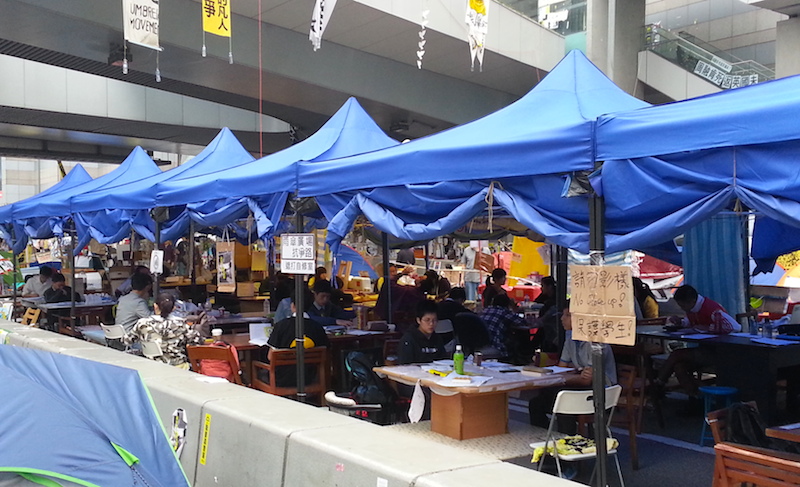
Indeed it is a sight to behold, with almost every necessity seemingly catered for. Beside McDonald’s a group of protesters have set up a mass phone charging station; next-door, two generators provide electricity for after-dark studying. The sheltered area can easily seat 30-40 students on the wooden furniture, much of which has been made on-site by a team of roadside carpenters.
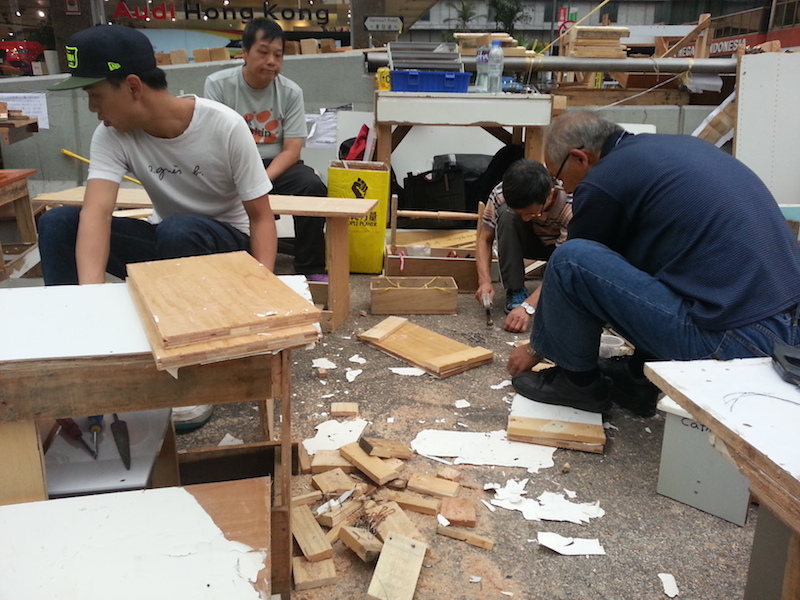
The study area also provides scheduled helpers on shifts, with timetabled English lessons in a tent nearby. Here, an extensive collection of books are free to borrow from one of three “revolution libraries” along Connaught Road.
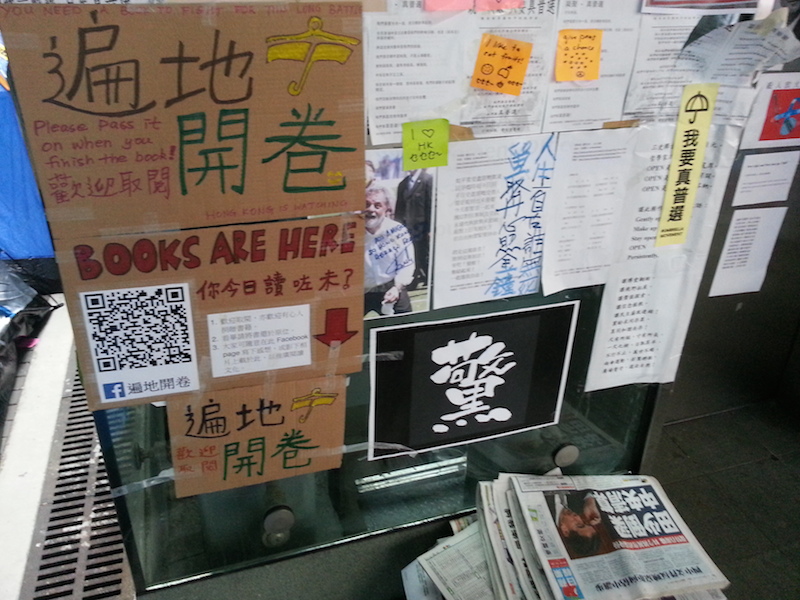

But even the pro-Beijing government can be said to be support the protesters in some sense. “I use free internet connection provided by the government, such as government Wi-Fi on the street or in the legal complex,” chimes David Zhang. “Even if we are fighting against their position, the government still provides internet and electricity, cleaning of the toilets, and so on.”
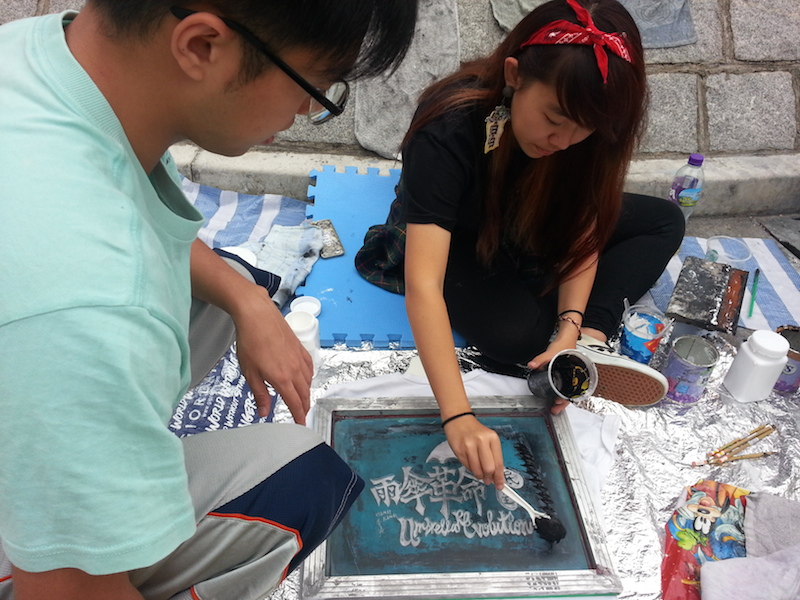
David insists never gets bored on Hong Kong’s streets, jamming with other musicians on his bamboo flute. ‘I’ve been playing 海阔天空 (“Under a Vast Sky”) with guitarists a few times. It’s a famous Beyond song being played all over the protests. I think it’s a good idea to encourage other protesters to keep fighting.”

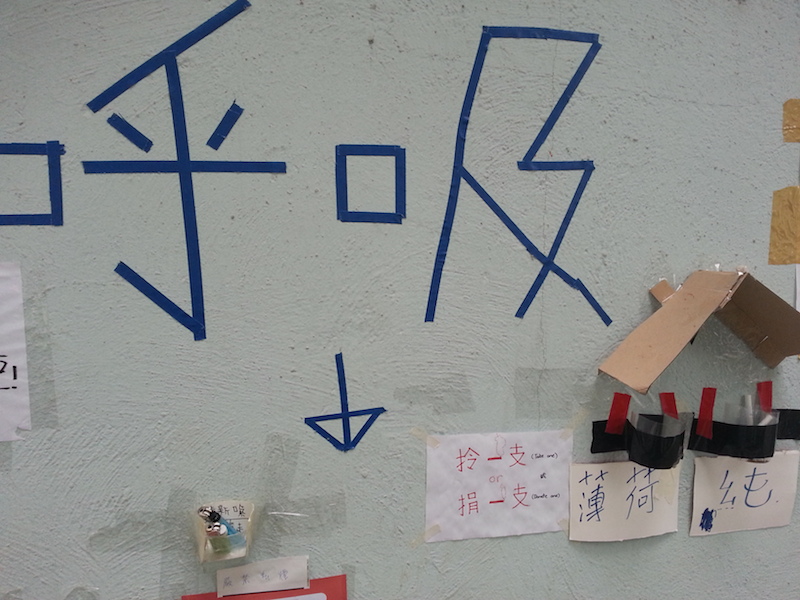

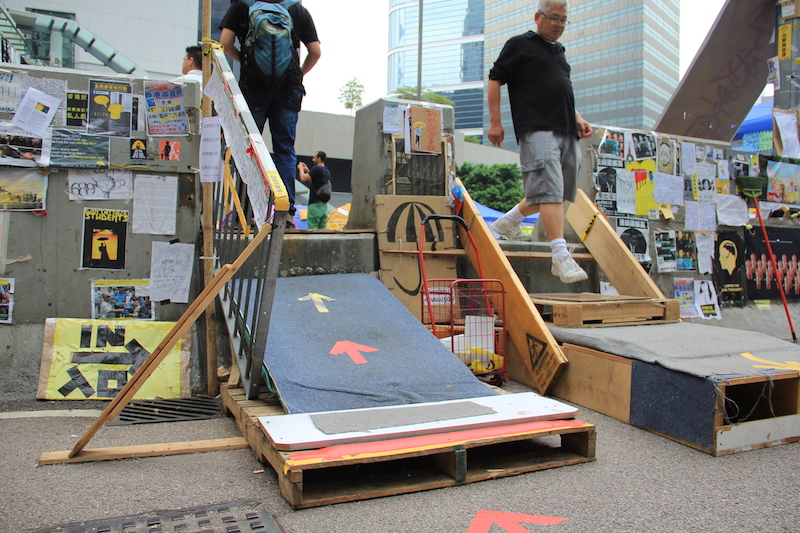
No one is quite sure how long this will continue, but given the protesters’ preparation and organisation, it could potentially be for a while yet.
READ MORE AWESOME COCONUTS HONG KONG STORIES
How does Hong Kong’s Umbrella Movement compare to other global uprisings?
COCONUTS TV: Democracy Chic – Occupy Hong Kong Fashion
PHOTOS: When pepper spray started hitting Occupy Central in Admiralty
COCONUTS TV: Who are the young anti-Occupy Hongkongers?
PHOTOS: Tear gas used on Occupy Central protesters in Hong Kong





Reader Interactions